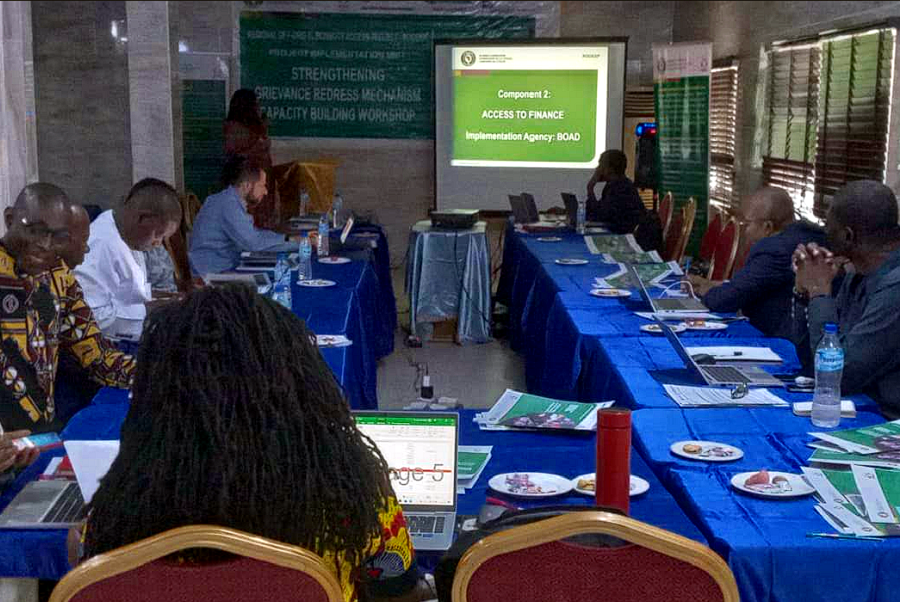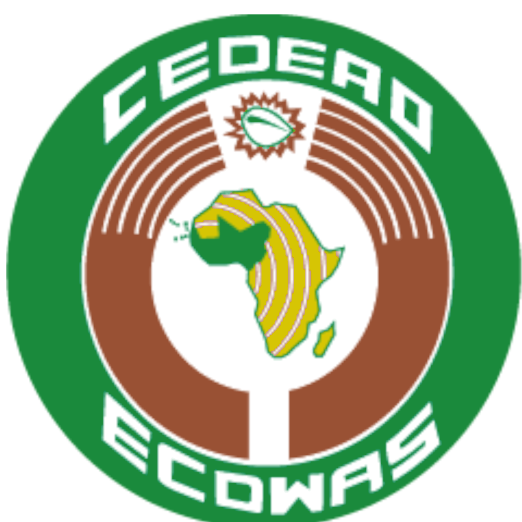ECOWAS – Strengthening Capacity Building for Grievance Redress Mechanism in ROGEAP Project Implementation.

ABUJA, September 20, 2023 – ECOWAS, under the Regional Off-Grid Electricity Access Project (ROGEAP), is a pioneering initiative aimed at increasing electricity access to households, businesses, and public institutions in 19 countries across West Africa. This ambitious project, funded by the World Bank, Clean Technology Fund (CTF), and the Directorate General of International Cooperation (DGIS) of the Government of the Netherlands, seeks to revolutionize the energy landscape in the region by promoting the use of modern stand-alone solar technology. ROGEAP is structured around two core components: developing a regional market and providing access to finance for stand-alone solar system businesses.
In pursuit of its commitment to environmental and social risk management, ROGEAP has established a Grievance Redress Mechanism (GRM) Desk. The GRM Desk’s primary goal is to ensure an accessible, inclusive, transparent, efficient, and harmonized GRM for project-affected people and other stakeholders. To further bolster this mechanism and enhance in-house capabilities, the ROGEAP Project Implementation Unit (PIU) organized a capacity-building workshop on
the Regional Off-Grid Electricity Access Project (ROGEAP) Project Implementation Unit (PIU) organized a one-day capacity-building workshop in Abuja, Nigeria, with the primary objective of strengthening the Grievance Redress Mechanism (GRM) and in-house capacities of the PIU, the Directorate of Infrastructure, Energy, and Digitalization, and by extension the Environment and Climate Unit of the ECOWAS Commission.
The workshop was attended by representatives from the ROGEAP PIU, the Directorate of Energy and Mines, the Directorate of Transport, and the Division of Environment and Climate. Additionally, three (3) participants joined the workshop virtually.
Participants were also engaged in discussions on the draft GRM policy, operational manual, and online grievance reporting form. They provided valuable suggestions on how to improve these documents to ensure that the ROGEAP GRM is accessible, inclusive, transparent, efficient, and harmonized.
The ROGEAP PIU is committed to implementing these recommendations to further strengthen the GRM and ensure that it is an effective tool for resolving grievances and concerns raised by project-affected people and other interested stakeholders. As ROGEAP moves forward, the strengthened capacity and refined GRM will play a pivotal role in addressing grievances and concerns, thereby contributing to the project’s positive impact on the lives of its beneficiaries and the sustainable development of the region.
Mr. Oumar Mbacke the Procurement Specialist highlighted the workshop agenda which laid the groundwork for a comprehensive establishment of the GRM within the ROGEAP project. He introduced the workshop agenda, which was reviewed and adopted. The agenda included three main components:
- Presentations and Discussion of GRM Policy Framework, Complaints Management, Reporting, and Establishing an Effective GRM Structure within the 19 Project Beneficiary Member States.
- Presentation and Discussion of the Role of GRM Focal Points, SEAH/GBV Survivor-Centered Approach, and Review of GRM Case Studies.
The workshop began with an opening remark by Mr. Bah F. M. Saho, Head of the Division, Ener-gy Access, and Alternative Energy, on behalf of the Commissioner for Infrastructure, Energy, and Digitalization who extended a warm welcome to all participants. He expressed gratitude to the project’s financiers and stakeholders for their invaluable contributions. He highlighted the critical role of the GRM in the context of ROGEAP. He emphasized the need for all grievances and concerns to be resolved amicably, positioning the GRM as a cornerstone for the project’s success. Participants were encouraged to actively engage and offer suggestions to improve the project’s GRM.
The subsequent presentations on GRM were conducted by the ROGEAP Consultant – Grievance Redress Officer, Ms. Perpetua Ngozi Okafor. These presentations covered a wide range of topics, from the introduction to ROGEAP and the identification of environmental and social operational risks to detailed insights into the GRM structure, policy framework, communication and outreach strategies, value chains, processes, and workflow.
Ms. Okafor also delved into the critical issues of gender-based violence (GBV) and sexual exploitation and abuse/sexual harassment (SEA-SH), providing case studies and recommendations for managing these complex concerns through the GRM.
Following the presentations, participants actively engaged in discussions and provided valuable insights and recommendations.
The workshop Chairperson in his closing remarks, The ROGEAP Project Coordinator and Senior Adviser, Mr Sylla Elhadji extended gratitude to the participants for their contributions and active involvement throughout the workshop. He officially closed the meeting, marking the end of a productive and insightful capacity-building workshop for the Grievance Redress Mecha-nism within the ROGEAP project. The commitment and engagement of all stakeholders exem-plify the dedication to ensuring the success of this vital initiative in the West African region.
ABUJA, NIGERIA, September 2023.
Directorate of Communication
ROGEAP – Article/Blog Post


Insightful
Electricity production and consumption is an integral part of our socioeconomic growth and development as people of west Africa. But we suffer inadequacy for so many reasons and solar energy is a sure alternative that will alleviate our status in this regard. This project is a welcomed move and will serve us best in the short run.
And I’d love to raise some grievances for the GRM-unit
1. Why is the Netherlands powering this project, why not West African state governments?
2. What are some of the most grievances raised about energy production and how will this unit see that they’re addressed adequately in the course of this project?
3. In the long run, the economic gains of this project will be enjoyed more by the Netherlands who will feed off the huge market that west Africa provides for the sale of these stand-alone solar generators. Or are there plants for production and assembly of these generators scattered all over the region?
4. Will this project encourage or discourage the improvement in the production of electricity as a form of energy via competition?